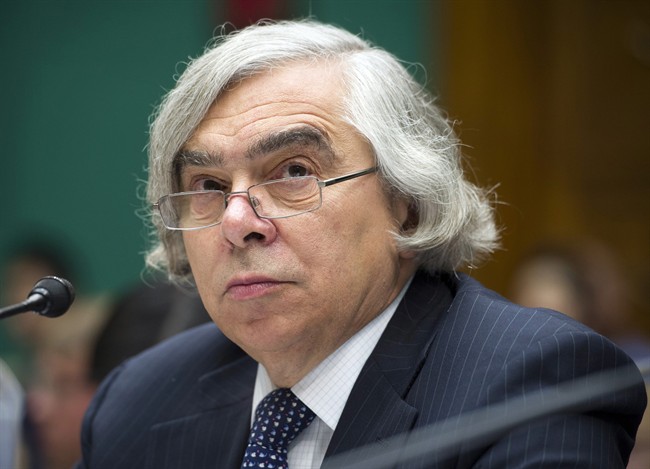WASHINGTON – As negotiators were grasping for a landmark nuclear deal, they hit a roadblock over Iran’s once-secret enrichment site at Fordo, a fortified bunker buried deep in a mountainside – potentially impervious to U.S. or Israeli airstrikes.

The United States wanted the facility shuttered, but Iran’s supreme leader insisted no nuclear facilities would close. Then, an American nuclear physicist with an untamable mane of wiry grey hair came up with a compromise: Allow the Iranians to tell their hard-liners they were keeping Fordo, but convert it to a research facility whose centrifuges would churn out harmless medical isotopes instead of enriched uranium.
Ernest Moniz, the eccentric MIT professor-turned-U.S.-Energy-secretary, by all accounts played a pivotal role in reaching the historic nuclear accord. Now with his diplomatic legacy on the line, President Barack Obama is turning to Moniz to help sell the deal to a highly skeptical Congress.
Moniz blitzed morning political talk shows on Sunday, making Obama’s case alongside Secretary of State John Kerry. This week, he’ll appear before the Senate Foreign Relations Committee, where doubts about the nuclear pact run high.
In between, aides say, the secretary is squeezing in one-on-one briefings with lawmakers ahead of a likely congressional attempt to scuttle the deal. While juggling his “day job” running the Energy Department, he’s also lobbying foreign energy ministers who are similarly suspicious of the deal.
“Secretary Moniz is an everyman scientist,” said Sen. Chris Murphy, who has received multiple Iran briefings from Moniz. “He can translate those nuclear details in a way that even senators can understand.”
Yet not everyone is content watching nuclear science watered down into talking points. David Albright, a former weapons inspector who runs the Institute for Science and International Security, said Moniz and his colleagues have been downplaying the deal’s vulnerabilities, such as that its enrichment restrictions sunset after 10 years, at which point Iran could race for a bomb.
“Moniz is speaking at a fairly high level of generality,” Albright said. “But the devil’s in the details.”
Moniz’s role at the centre of the deal began in February after Tehran informed Washington that Ali Akbar Salehi, Iran’s atomic energy chief, would be joining the next round of talks. Obama quickly settled on Moniz as a counterpart of Salehi. It turned out the two had something in common: they’d overlapped at MIT, where Moniz taught for decades and Salehi studied nuclear engineering.
The two had never met at MIT, but immediately clicked after meeting on the shores of Lake Geneva, in Switzerland, officials said. A few days later, Moniz and Salehi opted to dine together at a hotel, trading stories about mutual colleagues from MIT. That broke the ice for others on the U.S. and Iranian teams to get acquainted away from the tense negotiating table.
“He’s not one who’s very attached to protocol, and he very quickly was joking with the Iranians. The Iranians responded extremely well to that,” said Robert Malley, the senior director at the White House’s National Security Council and part of the U.S. negotiating team. “Over time, the Iranians learned that behind that appearance was someone who would fight fiercely for what he thought was in our interests.”
In Vienna, where negotiators spent much of June and July holed up in a hotel, Moniz developed a reputation as something of a bon vivant, with a quick wit, a chatty demeanour and an exacting palate when it came to his martinis.
He was also the only negotiator to be knighted during the talks.
Moniz, whose grandparents emigrated from Portugal, took a brief jaunt from Vienna to Lisbon to receive the Grand Cross of the Order of Prince Henry, one of Portugal’s highest distinctions. The talks were nearing an end, meaning Moniz would potentially miss the announcement of the deal and ensuing celebration. Although Moniz said he didn’t mind skipping it, his colleagues insisted, and he returned to Vienna less than 24 hours after he left.
“He was very moved by it. He’s proud of his Portuguese heritage,” said Kevin Knobloch, Moniz’s chief of staff.
—
Associated Press writers Bradley Klapper, Matthew Lee and Barry Hatton contributed to this report.



Comments